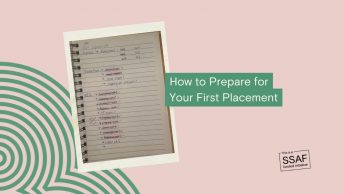This post is over three years old, the information may be outdated.
Written by Pagan Harrison-Brown
Studying online may seem like an easy, laid-back thing to do, you can study in the comfort of your trackies, bed, with drinks and snacks at the ready. However, forming a routine and getting into the habit of not procrastinating is the hardest part.
We all study at different times of the day depending on the lifestyle we have, and it may seem daunting when majority of your time is chewed up by that 9-5, sleep, and exercise, however it doesn’t have to be like that. Developing a routine and a set of skills that suit your study needs will allow you to quickly adjust to online learning and get the most out of it. It may seem like an annoying thing to do at first however it becomes a lifesaver long term, especially if you are new to online learning.
So here are 20 important study skills and tips to help you succeed when it comes to learning online:

- Start studying a week before every quiz or test.
- Watch videos and listen to podcasts on the topics you are learning about.
- Get lots of sleep. Sleep helps you process the days events, including what you learned.
- Write out your notes. It’s proven that handwritten notes help you learn better than typed out notes.
- Don’t just read what your lecturer and teacher give you. Find academic journals, books etc. that correspond with your subjects.
- Read and listen to the news. Especially in the social sciences/humanities, connecting concepts with current events helps you understand and process more easily.
- Exercise. This doesn’t have to be going on runs or lifting weights, it could even just be going for a 20–30 minute walk. It gets your blood pumping, gives you a break and will help you focus.
- Study at your desk. It is very tempting to study in bed, but your brain connects your bed with sleep, so you’ll get tired quicker.
- Read in advance. Read the textbook, modules, extra readings before a lecture or class, so when your teacher goes through that module you can easily follow what they are saying.
- If you can, go to the online classes. It is easier to follow when you are there and to ask questions on the spot, rather than watching the recording and having to send follow up emails.
- If you are feeling sick and burnt out take a break, it is more beneficial to you in the long run.
- Learn how to say no. if you have assignments to do, an early morning class or need to catch up on readings, don’t stay out till midnight with your friends.
- Don’t stress too hard over quizzes and assignments. If you expect them to go bad, they will. Always believe in yourself.
- Get up early It is a hard habit, but make yourself some coffee, get out of bed.
- If you are ever feeling tired, burnt out or stressed take a break. Set a timer for 20 mins, put on some music, get some water, eat a healthy snack, organise your area, write down a list of what you need to finish studying and take a deep breath.
- Get all your subject outlines together and write down dates. Go through them one at a time and mark down all tests/assignment dates. Put them into a monthly or weekly timetable.
- Make a weekly schedule of when to complete readings and do a weekly review of notes. Assign dates for each task. The subject outline roughly indicates when modules start, so do the readings before each class.
- Make a master list of assignments. Having all due dates together allows you to double check if you have any deadlines approaching.
- In the week or so before a due date, create a checklist of small tasks needed to complete the assignment:
- Set individual due dates for each smaller task by working backwards from the due date
- Smaller tasks make including finding sources, making an outline, writing a rough draft, and editing and adding references to create a final copy
- Write the smaller tasks into your dial to-do list
- Stick to the schedule you have made!

Remember things will come up, life is unexpected, and you will need to move around your schedule and to-do lists. That is ok, just make sure you don’t fall behind and plan a day for catch up. If you aren’t doing anything, you always have readings to do and assignments to work on, it is always better to be ahead then stressing because you have lost a week of knowledge. Having a plan set out makes it easier for you to remain disciplined and form a good, healthy habit around online learning.










